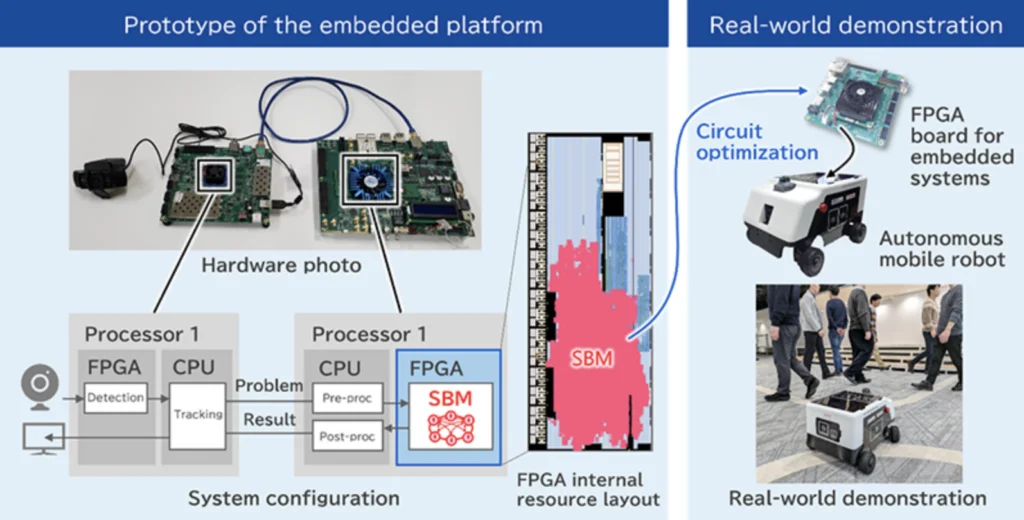Insider Brief
- A research team received £1 million to use quantum computers to explore a drug discovery effort.
- The University of Nottingham will partner with Phasecraft and QuEra Computing Inc. on a project to develop new drugs for myotonic dystrophy.
- The award is part of the Wellcome Leap’s $50 million supported challenge program Quantum for Bio(Q4Bio).
- News, Image: University of Nottingham
PRESS RELEASE — A team of researchers have been awarded over £1 million to explore the capabilities of quantum computing for developing new drugs for myotonic dystrophy.
The University of Nottingham, with partners Phasecraft and QuEra Computing Inc. are one of only 12 successful teams worldwide to be selected for funding as part of the Wellcome Leap $50 million supported challenge program Quantum for Bio(Q4Bio), that aims to accelerate applications of quantum computing to address pressing human health challenges.
The “Quantum computing for covalent inhibitors in drug discovery” project is led by Professor Jonathan Hirst and Dr Katie Inzani from the University of Nottingham and co-founder of Phasecraft, Ashley Montanaro. The team brings together world-leading expertise from human health sciences and computational chemistry, to quantum algorithm development and quantum hardware.

By exploiting unique properties of quantum systems for information processing, quantum computers can solve problems that are not tractable using today’s “conventional” computers. One of the most promising applications of near-term quantum computers is accurately modelling systems where quantum mechanics plays a key role, such as in materials science, chemistry and even drug discovery.
The discovery of new drugs has long been one of the most challenging tasks facing medical innovation. It has consistently pushed the capabilities of current modelling tools to the limit. The new project will demonstrate how this process can harness the combined power of quantum computing and classical simulation methods to tackle the crucial task of drug discovery for myotonic dystrophy.
Myotonic Dystrophy is a genetic condition that causes progressive muscle weakness and wasting and often affects the electrical conduction system of the heart, breathing and swallowing muscles, bowels, lens of the eye and brain. It is the most frequent muscular dystrophy worldwide, with an estimated 6,500 people affected in the UK.
“I am thrilled to be spearheading this exciting project that ultimately aims to show how the emerging area of quantum computing could have real-world impact in treating disease,” said Jonathan Hirst, a Royal Academy of Engineering Chair in Emerging Technologies and Professor of Computational Chemistry.
Katie Inzani, who holds an EPSRC Quantum Technology Career Development Fellowship and is an Assistant Professor in the School of Chemistry, added, “We have brought together a multi-disciplinary, multi-organisational team which will adopt a novel collaborative approach to research that is grounded on innovation across all stages of the drug discovery process.”
Ashley Montanaro, co-founder and CEO of Phasecraft, says, “Our research developed quantum algorithms achieving dramatic speedups over previous work. We’re excited to be applying these ideas to human health, in collaboration with an outstanding team and using a world-class quantum hardware platform.”
The quantum computing hardware for the project has been built by QuEra Computing Inc., the leading provider of quantum computers based on neutral-atoms. Based in Boston USA, the company is founded on pioneering research conducted at Harvard University and MIT. QuEra is building the industry’s most scalable quantum computers to tackle useful but classically intractable problems for commercially relevant applications.
“Quantum computers have the potential to solve previously intractable problems, and drug discovery is one of the most exciting applications for this technology.”, says Alex Keesling, CEO of QuEra, “We are delighted to partner with the University of Nottingham and Phasecraft and use our large-scale quantum computers to help address myotonic dystrophy.”
If you found this article to be informative, you can explore more current quantum news here, exclusives, interviews, and podcasts.














